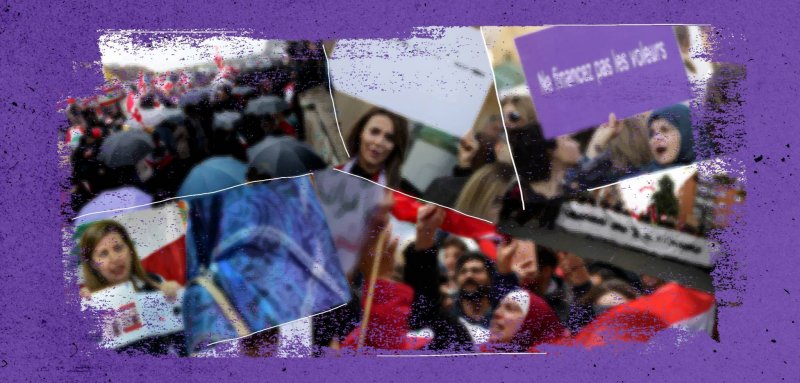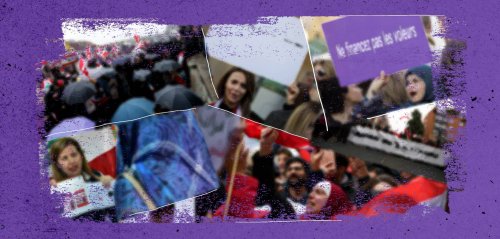In 2017, the Lebanese Parliament approved a new electoral law that allows expatriates abroad to participate in the parliamentary elections from the foreign countries they are residing in (nonresident voting), after it had been a requirement for anyone wishing to vote to return to the country to do so.
In an unprecedented manner, thousands of Lebanese expatriates took part in the 2018 parliamentary elections from abroad, but their level of participation and engagement had been modest. Observers attributed this to the short time frames that had been set for expatriates to register with their embassies abroad to vote, while others linked it to other factors, including the novelty of the experience and a lack of confidence in the integrity of the electoral process and the counting process.
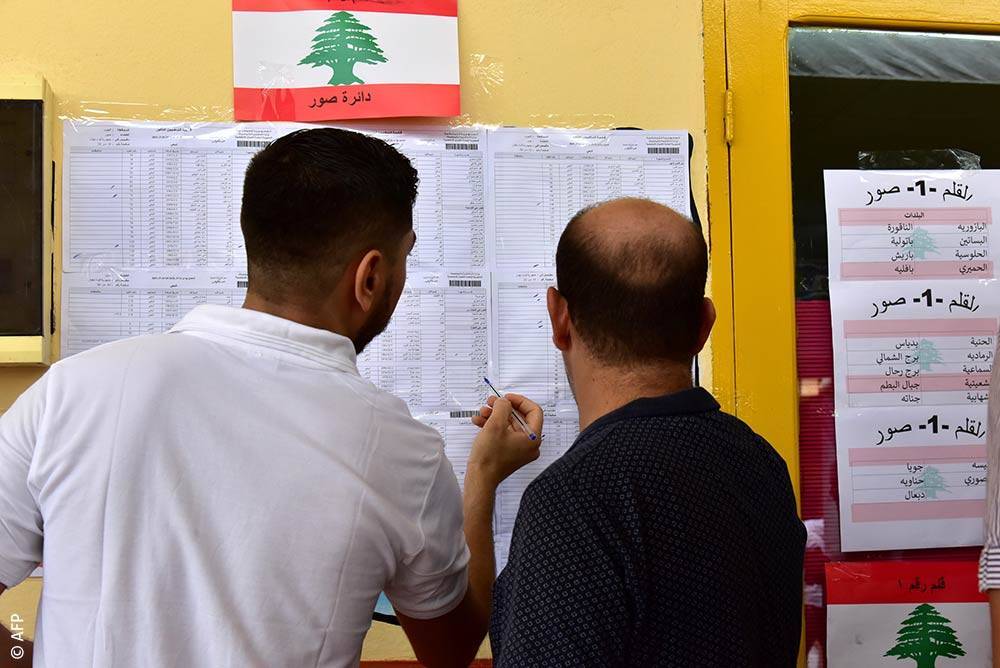
According to the figures of the Lebanese Interior Ministry and the municipalities, at the time, the number of expatriates who registered to vote was 82,900 people, of whom only 46,799 voted — or about 56.4% of the total number of expatriates who were registered to vote, representing 2.5% of the total number of people participating who voted in that round.
Ahead of the fast approaching elections scheduled to be held on May 15, those living abroad are voting before those who reside in Lebanon will, on May 6 and May 8. About a quarter of a million expatriates registered their names to participate, and the official review of the registrants concluded that 229,785 of them had the right to vote, or about 5.7% of the three million and 970 thousand who are entitled to participate in selecting the 128 members of parliament.
While the elections this time come at a very sensitive and difficult time, coinciding with a financial crisis that has struck the Lebanese economy at its core alongside several internal and external political crises, a large group of citizens have high hopes for the Lebanese diaspora to make a difference and vote for the forces of change and the forces that left power following the October 2019 revolution.
They believe that expatriates are capable of ridding the country of a clientelist authority often linked to corruption, leading the country to the worst crisis in its contemporary history, as they are “free from the enticement and clientelism that is practiced by the parties in power, and from the intimidation and threats that citizens are exposed to within the country,” according to resigned Kataeb MP Elias Hankash.
Expatriates contribute greatly to the Lebanese economy. Their remittances range between seven and nine billion dollars annually — between 35 and 40 percent of the national product, which reached $22 billion following the lira collapse, according to economic analyst Mounir Younes.
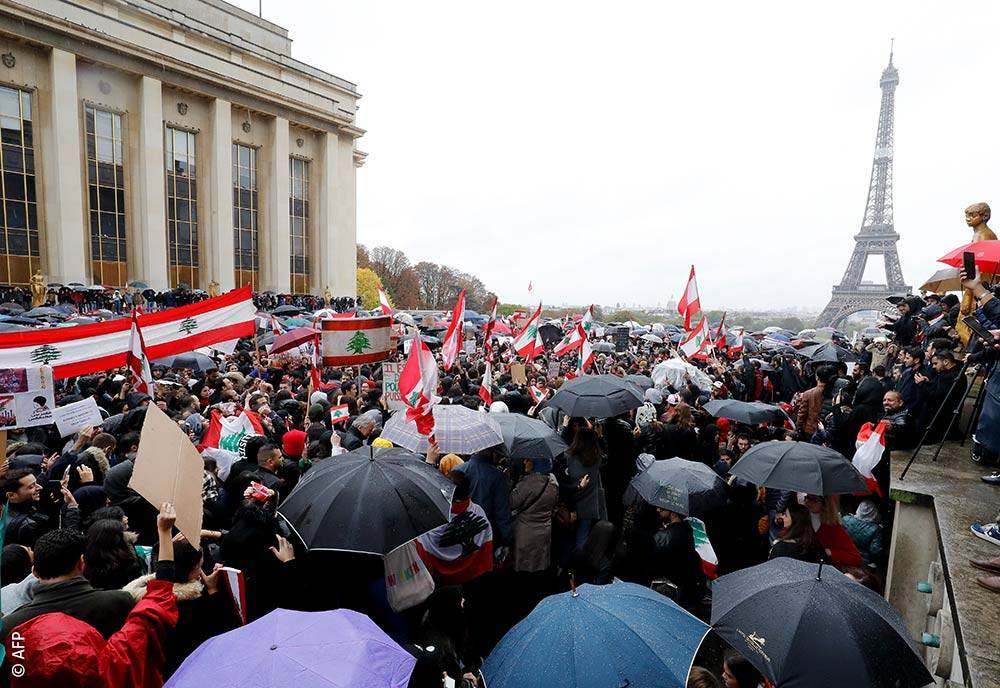
Accordingly, voices came out urging expatriates to register their names to vote, or return to the polls in Lebanon. State sponsored, individual, and collective initiatives emerged under several headings, including: “One vote will make a difference” and “Vote to get rid of them”.
Also, several initiatives and voluntary groups became active in encouraging expatriates to cast their votes first, and vote for the forces of change second, including “United Diaspora”, “Peoples Platform”, “Towards One Nation”, “The Lebanese Diaspora Network” and “Kulluna Irada”.
The important question remains: Who will expatriates vote for in the upcoming elections? Will they vote for the forces of change? To answer this question, we contacted a group of active advocates and activists within the diaspora and relevant organizations in a number of countries that host some of the largest Lebanese diaspora communities, in the absence of one comprehensive organization that represents the diaspora or speaks on their behalf.
“They are free from the enticement and clientelism practiced by the parties in power, and from the intimidation and threats that citizens are exposed to in Lebanon”... Hopes for “change” and “saving Lebanon” rest on expatriates, so who will they vote for?
Some estimates indicate that there are somewhere between 11 and 18 million Lebanese expatriates, but only about one million retain Lebanese citizenship and are entitled to participate in the elections. The figures announced by the Lebanese Ministry of Interior regarding the lists of expatriates registered to vote abroad indicate that the majority resides in five countries: France (28,000), the United States of America (27,900), Canada (27,400), the UAE (25,000), and Australia (20,000).
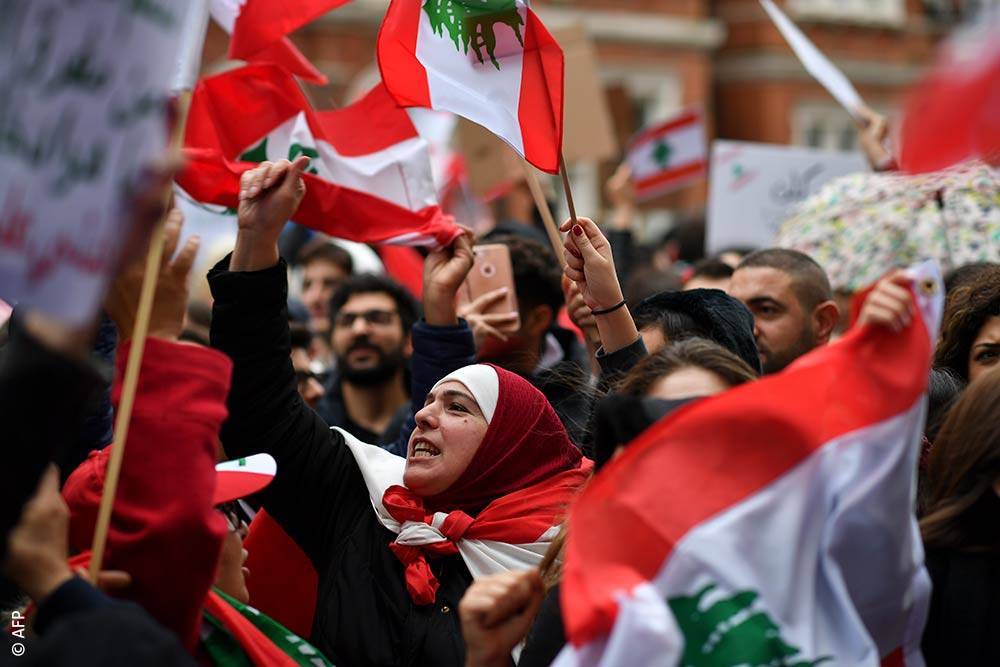
An increase that heralds change
Nancy Stephan, a founding member of The Lebanese Diaspora Network (TLDN), sees the large increase in the number of expatriates registered to vote compared to 2018 as “evidence of the diaspora’s encouragement to participate in policy making in Lebanon”, suggesting that the increase in the number of voters is in the interest of change.
Stephan and her companions founded the network in February 2020 after they noticed that the momentum of the uprising in Lebanon was fading and realized the urgent need to create, organize, and regulate political action that would map the electoral process which in turn, “would lead to real change,” according to her.
The network is active in 42 cities around the world, and strives to “raise voices” through advocacy and lobbying campaigns targeting the international community, the government, and the people of Lebanon to bring about change.
The network sees that there is an “influential role for expatriates in the electoral process” and urges them to vote for “newcomers who would bring about change” and “provide humanitarian and development assistance” inside Lebanon. It communicates with the expatriates via social media and through a network of volunteers.
She adds, “During the registration process for the expatriates, we sensed a clear resentment aimed at the current political establishment, as they expressed their desire for revenge against the politicians and to give an opportunity to new faces and parties”. She went on to stress that “expatriates were forcibly expelled from Lebanon due to wrong policies that led the country to collapse. And after their money that had been deposited in Lebanese banks was stolen. they have a desire to exact revenge on those who did this.”
She however acknowledges that there are supporters of the ruling parties among the expatriates, and that not all the registered voters will go to the polls. She says, “Of course, in the heart of the Lebanese community within every (foreign) country, there are people who intend to vote for the (current) authority. In the last elections, the supporters of the ruling authority were the ones who took part in the voting. It can be said that they are not a majority because their number did not exceed 82,000.”
The numbers of the past parliamentary elections indicate that only 2.5% of diaspora voters voted for the forces of change, while the rest voted for the parties in power, with those opposing the authority questioning the credibility of these results.
Stephan concludes that they are working in the network to “motivate” the largest possible number of registered expatriates to go to the polls, bypass any potential logistical obstacles in order to be “the voice of conscience for their relatives in Lebanon”, and urging them to “make the right choice”.
Diana Menhem of “Kulluna Irada” agrees with Stephan that the ordeal Lebanon is going through may turn into an opportunity that will push people to change. She points out that they “rely more on the diaspora to vote for change, especially the most recent wave of expatriates who left the country in the last three years,” noting that this particular inclination was made clear to them through their contact with many expatriates in various countries.
“During the registration process for expatriates, we sensed a clear resentment of the current system”… Great expectations for expatriates to vote for the lists of change, despite the activities of the parties in power abroad and other “logistical obstacles”
“Kulluna Irada” is a pressure group founded in 2016 through voluntary efforts by a number of Lebanese citizens, mostly expatriates. Its main goal is to reach a sovereign state that would be able to achieve social justice.
“Those people (who were forced to leave Lebanon recently due to the economic crisis) feel like they were forced out of the country against their will,” Menhem adds. She also points out that the expatriates are “more liberated” from “the restrictions imposed by the parties in power” on citizens in Lebanon, including “clientelism networks” and “sectarian considerations, as they are no longer subject to the daily sectarian frictions in the country.”

Prior to the upcoming electoral process, “Kulluna Irada” sought to “network” the groups and lists opposing the authority among the expatriates in foreign countries that host the largest number of the Lebanese community, and to educate the expatriates about the necessity of voting.
Menhem reinforces her expectations by saying that the group’s “global council of expatriates” has a strong presence in the countries of diaspora that include a large Lebanese community, and that it works on the field in addition to online communication and via social networking sites.
Many lists of change: Blessing or curse?
From France, Soraya al-Ahmar, an activist in the Lebanese Diaspora Network and a number of other groups serving expatriates tells Raseef22 that about 90% of those who communicate with them intend to vote for the forces of change, not the parties in power.
However, she points to a “problem” that has been bothering expatriates and interested groups when it comes to urging them to participate in the elections — the large number of lists supported by the civil society. In total, 103 lists are competing for seats in parliament this year, a significant increase from 2018, when only 77 lists competed.
Al-Ahmar explains, “Because of the number of the lists (of change), expatriates do not know who to vote for. People were hoping that there would be fewer lists. The large number of lists is causing a lack of a unified choice. Not only that, people are not aware of the voting procedures.”
She adds, “I expect that there will be a turnout. Indications, so far, show that there is interest (from expatriates) while acknowledging the existence of a state of ‘confusion’ and being lost. We try to mitigate this disorientation by making it clear (to the expatriates) that the elections are the first step in laying the foundation stone for the process of change. We also explain to them that the outcome of the elections will not change things, or completely turn them 180 degrees, but rather it is the first step towards change, and we must continue to build together a future Lebanon.”
Realizing the confusion that the large number of lists and the many groups targeting expatriates may cause among the Lebanese communities abroad, Nadim Haddad, a Lebanese expatriate businessman residing between the United States and Canada for more than 32 years, established an association aimed at coordinating between groups focused on the diaspora to agree on a few options and present them to expatriates.
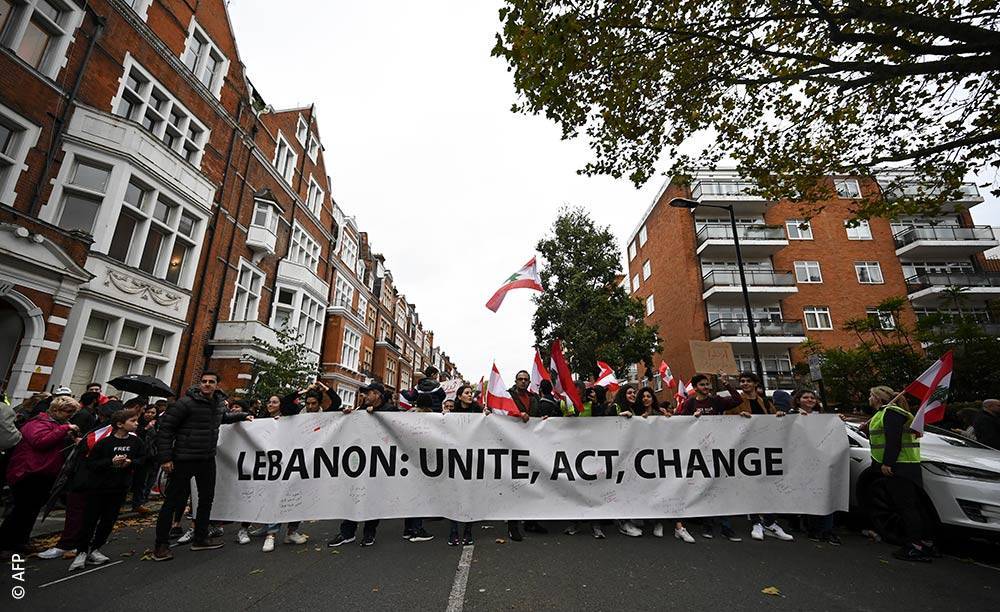
Thus, “DART: the Diaspora Action Round Table”, which began with an alliance between three groups, now includes eight groups uniting in a position that opposes those in power and sectarianism. Haddad tells Raseef22 that the “round table” does not represent all the diaspora, because the expatriates, just like the Lebanese people at home, are governed by several divisions on different levels.
He believes that the Lebanese diaspora includes descendants and newer generations of immigrants who have never gone back to the country. He and his comrades wish to “reconnect them to their homeland”, albeit through some form of “cultural contact”.
He says, “For a year and a half, we have been making it clear to people that there is an option other than those in power who have led Lebanon to what it is suffering from now. We hope that the ‘silent majority’ that has gotten used to boycotting elections for the past 40 years will participate and voice its opposition to the choices of candidates”.
We have been making it clear that there is an option other than the corrupt currently in power. We hope the silent majority which boycott elections for the past 40 years will participate in Lebanon's upcoming elections and voice its opposition.
Out of a total of 15 constituencies, the “round table” groups agreed for the first time to support one list in each of the 12 constituencies to mobilize the largest number of expatriate votes in their favor.
Haddad believes in the efficacy of this method in winning the votes of expatriates “who do not understand the intricate twists and turns of politics, but are sick of the current (political) establishment,” noting that this “makes it easier for them and encourages them to vote”.
He continues, “We did not want to become political activists. But Lebanon reaching this stage of ruin made us — the Lebanese people from all around the world and from all professional disciplines — decide to work together to create a structure that would help save the country”.
On the other hand, Zeina al-Muqaddam from “Towards One Nation” appears to be more optimistic; first, with the massive participation of expatriates in the upcoming elections, and second, with the benefit achieved due to the many lists of change and reform.
“Towards One Nation” is a group founded by Lebanese expatriates in 2020 to support political change by helping the lists of change and reform to reach Parliament, by networking its members (which are all newcomers) with the expatriates, and encouraging expatriates to register their names and take part in the elections to bring about the desired change in hopes of a prosperous future and a stable Lebanon.
Al-Muqaddam tells Raseef22, “The diaspora voter turnout increases the more they notice solidarity and a coordination of efforts between the lists of change participating in the elections. This is what we, the expatriates, have aspired for: uniting efforts to establish a full national coalition. This has not yet been achieved, but the positive thing is that we have — from the North to the South, and from East to West — strong and diverse lists of change that promise change, and expatriates are well aware of this.”
“Towards One Nation” is connected to expatriates via several groups on WhatsApp, which al-Muqaddam says is the “best way” to help them have “direct communication” with expatriates and reach “the right (desirable) people accurately”.
“The large number of lists is causing confusion”... Lebanese groups and initiatives active within the diaspora to raise awareness, helping make the “right choice”, and “prioritize the national interest”... Will they succeed?
The Lebanese in the Gulf... Heading for change?
Still, al-Muqaddam cautioned that expatriates voting for the forces of change or the parties in power is “something that differs from one country to another”. For example, it is likely that the Gulf states will witness a greater number of votes for the forces of change, especially following the recent crisis between Lebanon and the Gulf. She also believes that expats in the USA, Canada, France, and Europe are strongly inclined towards change.
This is also confirmed by Carol Khalifa, an activist in “The Lebanese Diaspora Network”, who has been residing in the UAE for nearly 15 years. She tells Raseef22, “Every person you talk to wants the forces of change (progressive forces). People are saying to us: We do not care who we vote for, but we want to vote for the people who have nothing to do with the parties and the current (political) establishment.”
However, she then adds, “Of course, there will always be people who strongly identify with certain parties, especially the opposition, and very few partisans are with the current authority, and it’s in constant decline.”
Khalifa stresses that the Lebanese community in the Emirates is “one hand” and is in constant communication over what is happening in the country and the future of Lebanon through several public groups on WhatsApp, Telegram, Facebook, and other social networking sites. She further indicates the creation of groups for each electoral district, and this is what enables them to connect the candidates of change and reform in a particular district with the expatriates that are registered to vote in it, as well as organize virtual meetings between them to present their electoral programs and share their ideas with the voters.
She adds, “We are not only encouraging expatriates to vote. We are highlighting the importance of not casting an empty ballot, because we are trying to learn from the results of 2018, and let them know what is waiting for them (if they do). And we expect more people to vote.”
Khalifa points out that the recent crisis between the Gulf and Lebanon, following statements made by former Information Minister George Kordahi about the war in Yemen, strongly affected the attitude of the expatriates there towards the current authority. She explains, “There were people who were very partisan towards the authority. After everything that happened, they opened their eyes. They saw that the person sitting on the chair in Lebanon (those in power) destroyed the country — we no longer have a homeland, we no longer have an economy, and yet they keep saying things that would destroy the source of income of those who live abroad. Even those who were partial to the parties in power have begun to declare out in the open that they are against the current authority.”
She points out that there is consensus among expatriates that Lebanon “must be a neutral country” on the international level, because “the composition of the country does not allow” for otherwise.
Will the parties in power stand idle?
Despite expectations and some opinion polls indicating an inclination towards change among the diaspora, not many believe that the parties in power will succumb to this and completely lose hope of winning the votes of the diaspora.
Soraya al-Ahmar from France says, “We did not notice a lot of party activity,” adding that the majority of party gatherings and activities were “more directed to their own audience (the parties’ audience) and were not an open invitation”. She added that they were more focused around the Kataeb party, the Lebanese Forces party, and the Free Patriotic Movement “who have amassed a noteworthy group of supporters” in France.
She pointed out that they, as a group aiming for change, address everyone at the same time, including the audience of partisan expatriates “from a national standpoint”, pointing out that “our hope is that the largest portion of Lebanese society will rid itself of its party affiliations and focus on the national interest as a whole."
Zeina al-Muqaddam from “Towards One Nation” also indicates that some expat countries “are unfortunately still under the control of the parties in power, and will inevitably witness a vote in favor of change and reform, but not with the same momentum and strength that is in the Gulf, the United States, and Canada”. Al-Muqaddam refused to name these countries, and said that they would become clear as soon as the results were announced.
Even in the Gulf, Carol Khalifa asserts that, “Today, we are noticing intense activities from the parties in power. Many people tell us that they received calls from individuals who are affiliated with these parties with the aim of influencing their voting decision.”
She continues, “Unfortunately, these parties have access to information and data that we do not have. They have names, phone numbers, and emails. This makes it easy for them to reach anyone abroad and try to win them over. We unfortunately do not have such sources, nor the money that they invest in this. The only thing we can count on is one’s sense of patriotism, after 30 years passed and we lost our sense of national identity and belonging to the homeland.”
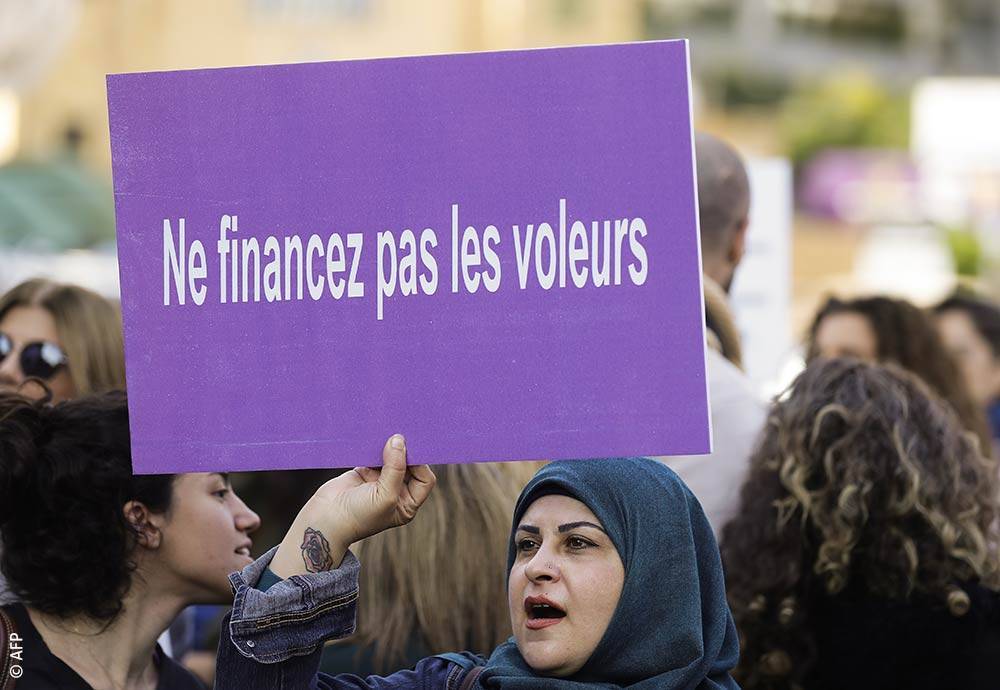
The people we contacted denied that they had observed any interference from Lebanese embassies abroad to direct expatriates to vote for the parties in power.
Doubts and fears
In addition, several concerns were raised about possible attempts by the authority to “thwart and obstruct the voting of expatriates” for reasons, some of which have to do with the economic crisis and the inability to secure the expenses needed to organize elections abroad.
As a result of these fears, a campaign under the hashtag ‘#ExpatriatesAreAlsoLebanese’ began to spread throughout social media before the start of the registration period for expatriates which took place between October 1 and November 20.
The Lebanese Parliament had granted an exceptional approval of 320 billion Lebanese pounds in the 2022 general budget, of which 260 billion will be allocated to the Ministry of Interior and municipalities, and another 60 billion to the Ministry of Foreign Affairs and Emigrants in order to cover the cost of the electoral process at home and abroad.
Mounir Younes tells Raseef22 that “failing to hold elections abroad put the results in risk of being constitutionally challenged,” adding that “all efforts are being made to secure the necessary funds through aid or donations, after the state of Lebanon secured the funds required to conduct the elections at home.”
Other doubts and suspicions surround the vote counting process. According to the process being followed, the ballot boxes are collected following the end of the voting process abroad and transported by a shipping company contracted by the Lebanese government to Beirut Airport. There, they are handed over in the presence of the security forces and transported “under heavy security” to “Banque Du Lebanon” and kept in its central treasury until the end of the voting within the country on May 15. Then all the boxes are opened and the votes are counted at the same time. However, several voices have rang out, stating that this process may expose the casted votes of the expatriates to being “tampered with”, and demanding that the votes be counted in polling centers abroad so that they are not tampered with during their transport.
"After everything that has happened in Lebanon, the expats will vote, and even if they polling station is far from them, they will travel the distance, so that the country can travel a great distance towards change”
Far from this debate that is based on assumptions, Diana Menhem notes the “logistical difficulties” that may hinder the voting of some expatriates in the polling stations that are far from them, which take around three hours to reach by car. She says, “There are expats who are assigned polling stations that are very far away. For a large part of them, some centers are impossible to go to. It is a very long distance, and takes three to four hours to cross by car. (This is) a big blow that could prevent many expats from voting.”
Zeina al-Muqaddam confirms the existence of these logistical difficulties, but she is optimistic that “after everything that has happened in our country, the expats will vote, and even if they place a polling station far from them, they will travel the required distance, so that the country can finally begin to travel a great distance towards change”.
Raseef22 is a not for profit entity. Our focus is on quality journalism. Every contribution to the NasRaseef membership goes directly towards journalism production. We stand independent, not accepting corporate sponsorships, sponsored content or political funding.
Support our mission to keep Raseef22 available to all readers by clicking here!
Interested in writing with us? Check our pitch process here!
